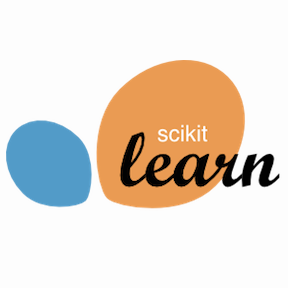Felipe
Hi, I'm Felipe. I'm currently a post-doctoral resarcher at Saint Louis University (United States), on leave from my
Assistant Professor position at the Federal Institute of Alagoas (Brazil), Principal Investigator at
LEAD and software developer.
I'm also a former Visiting Researcher at the Karlsruhe Institute of Technlogy (Germany) and
I finished my doctoral's degree in CS at CIn-UFPE.
When I'm not researching, teaching, or developing, probably I'll be surfing.
Here you will find my research interests, technologies that I study and use, and some papers that I published.
Research Interests
Applied Artificial Intelligence, Deep Learning, Geospatial Data Sciente, Models at Runtime, Software-Defined Networking, Software Engineering.
Current Research Projects
List of research projects that I contribute(d) to.
2023 - 2024 | Share Farm Intelligence via Edge Computing
The goal of this project is to propose a system to orchestrate data gathered using sensors, such as hyperspectral and thermal cameras to collect imagery on soybean, sorghum, and orther crops. Preprocessed plant datasets will be then offered to scientistics and farmers in different formats via a web-based system, ready to be processed by deep learning algorithms or consumed by thin clients.
2022 - 2023 | Evaluation of Deep Learning Algorithms in Detecting Cardiovascular Diseases
In this project, the aim is to develop and analyze models for the prediction of heart diseases using various patient cardiac attributes and to detect imminent heart diseases using machine learning techniques such as backward elimination algorithm, logistic regression, REFCV, and deep neural networks, both on publicly available datasets and data from popular heart monitors. The results are also assessed using confusion matrices and cross-validation. Early prognosis of cardiovascular diseases can assist in decision-making regarding lifestyle changes for high-risk patients, ultimately reducing long-term complications.
2020 - 2022 | Cyberphysical Platform for Smart Irrigation
The object to be developed in this project is an intelligent platform to monitor the level of water needed in a given crop and direct an optimized amount of water to the places where there is demand for the resource. The Internet of Things (i.e., Internet of Things - IoT) with its multitude of sensors, actuators and other related technologies (e.g., Machine Learning) can be used for this purpose. Thus, the platform to be developed: (i) will have a set of IoT tools combined to monitor, through drones and/or field sensors, the crop's water needs; (ii) will act in defining the opening or closing of water pumps to direct the amount of water to specific areas of cultivation; (iii) it will have prediction models - based on Machine Learning and/or application of water balance models (e.g., ACQUACROP) - to control the water pumps used in irrigation.
2022 - 2023 | Analysis and Prediction of Covid-19 Cases and Deaths in the State of Alagoas Applying Machine-Learning Models
Considering that Machine Learning models have a high dependence on the data that are used in their training processes, this project aims to analyze the performance of these models to perform the prediction of COVID-19 in local contexts of the State of Alagoas, in the northeast of Brazil. For this, databases from the region will be used to evaluate the predictions obtained from the models. In this way, it is expected to obtain statistically valid conclusions to identify which characteristics and algorithms should be taken into account to obtain relevant information that will help public health agents in this and similar states to identify the course of COVID-19.
2021 - 2022 | Diagnosis of the Open Data Ecosystem in the Municipalities of Alagoas: A Quanti-Qualitative Approach
The objective is to map the open data ecosystem of the chambers, which will support proposals to improve quantitatively and qualitatively the access to information in the municipalities. For this, we will investigate the transparency of Alagoas municipal councils from the collection of empirical evidence. This evidence will form part of a diagnostic report and a transparency ranking.
Selected Papers
List of selected papers published from my research. For a full list, please visit my Google Scholar profile.
A multifaceted benchmarking of GAN architectures on generating synthetic satellite imagery
Kevin Wells, Felipe A. Lopes, Vasit Sagan, Flavio Esposito.
52nd Applied Imagery Pattern Recognition Workshop (AIPR). 2023.
PC2I: Cyber-Physical Platform for Smart Irrigation through the Internet of Things
Jammys G.B. da Silva, Jabes S. Santos, Josefa L.M. dos Santos, Carlos E.B. Santos, Tony Silva, Tamilly K. do Nascimento, Felipe A. Lopes.
Congress of the Brazilian Computer Society. 2021.
Using the RFC 7575 and Models at Runtime for Enabling Autonomic Networking in SDN
FA Lopes.
Congress of the Brazilian Computer Society. 2021.
Model-based flow delegation for improving SDN infrastructure compatibility
FA Lopes, P Tiburcio, R Bauer, S Fernandes, M Zitterbart.
NOMS 2018-2018 IEEE/IFIP Network Operations and Management Symposium, 1-9. 2018.
Automatically Generated Simulations for Predicting Software-Defined Networking Performance
FA Lopes, RR Souza, S Fernandes
IEEE Symposium on Computers and Communications (ISCC), 915-918. 2018.
A Software Engineering Perspective on SDN Programmability
FA Lopes, M Santos, R Fidalgo, S Fernandes.
IEEE Communications Surveys & Tutorials. 2015.
Repositories
GitHub repositories that I've been working on.
For the full list of repositories, please visit my GitHub profile.
Last Posts
Posts about research findings, articial intelligence, software development, and related stuff.
Papers I read
Papers I've read in my research.
Technologies
Technologies that I use to work or research.









